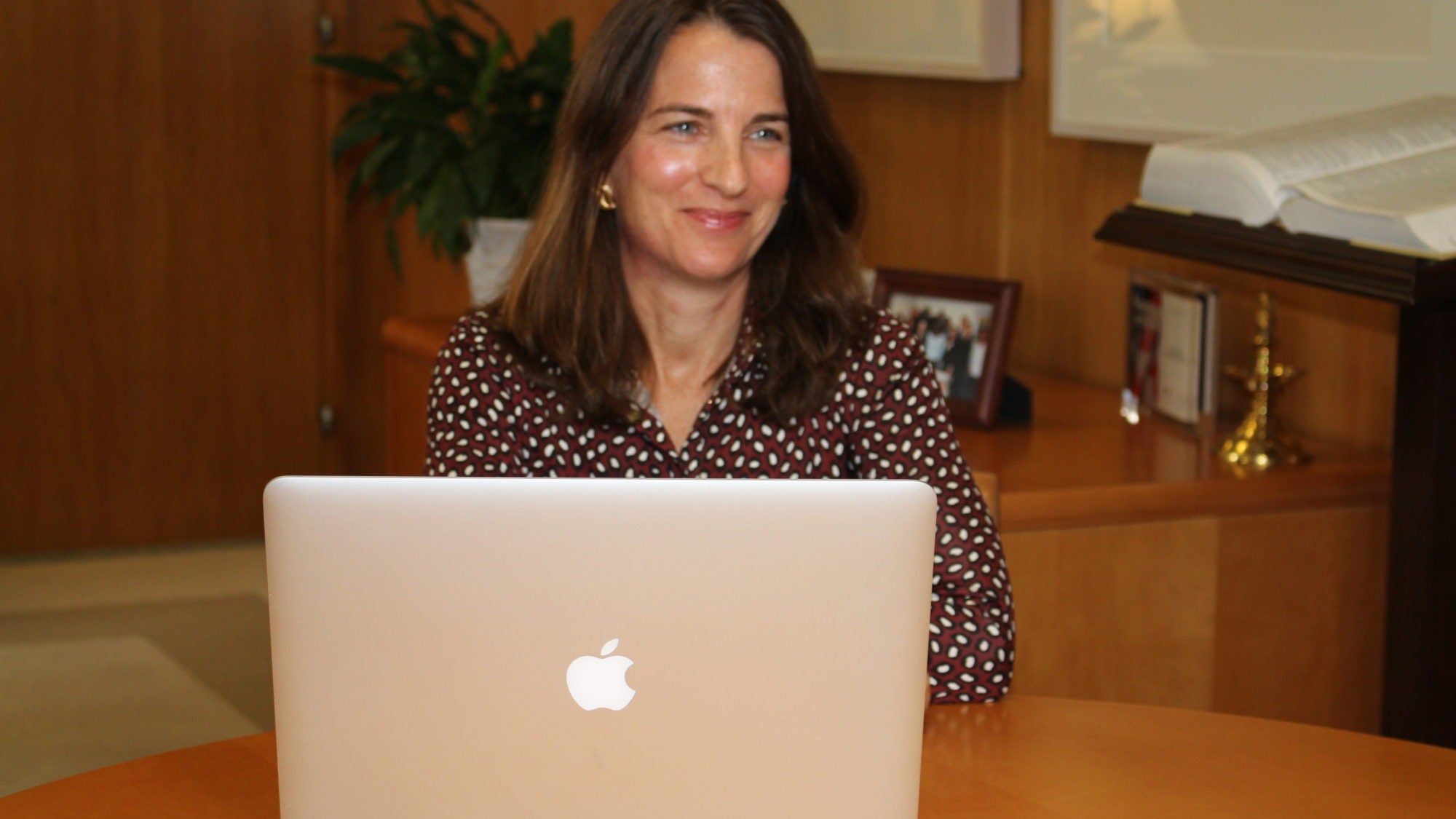
Title: Sheba Crocker on Humanitarian Aid in the 21st Century
The Georgetown University School of Foreign Service regularly hosts coffee chats with professionals in the field of international relations to expose students to current work being done and to provide them with opportunities to ask questions. After one such coffee chat, GJIA sat down with Sheba Crocker to discuss the issues facing those who administer humanitarian aid, specifically those who work for CARE USA, in the 21st century.
GJIA: What has been the biggest obstacle in undertaking humanitarian missions across the world in the past few years?
SC: It’s hard to pinpoint just one, but I would say there are probably three main obstacles. One is resources. The need around the world for humanitarian space is enormous, and the resources to meet this demand are not fully there. That has been a huge problem both on a global scale and for our agency, because there is always more that we want to be able to do. A second obstacle is humanitarian access and, more broadly, a much more complicated space around international law and norms, which are being violated on a daily basis around the world. These access issues run the gamut, from really challenging operating environments to things that governments put in place. This can include the structure of the governments, funding restrictions, visa requirements that can slow down the ability for aid to reach the country, and degrading infrastructure that make it quite challenging for humanitarian actors. The third, I would say, is inhospitable political environments. Thankfully, we still have donors like the U.S. government providing funding for humanitarian aid. However, we do not have political actors working to solve the conflicts and crises around the world, or making responsible decisions on things like displacement crises.
Considering the obstacles you just mentioned, what are the ways in which the U.S. government can play a more active role in aid missions?
Historically, the United States has been a leader in the humanitarian system, and we have seen a walk back from that under the current administration. The United States can get more involved by increasing the political level of engagement, pushing peace processes to resolve conflict, showing up at international conferences and raising money, leading the way on humanitarian policy issues-pushing back against countries where there are asset problems, or where there are international humanitarian law violations-and funding humanitarian projects. I think the world is really missing out on U.S. leadership, and we are seeing the impacts of that.
Has climate change impacted humanitarian crises and the way in which CARE responds to them?
The short answer is yes. I think we are seeing climate change and humanitarian action coming together in two concrete ways. One is the increase in frequency and strength of the destruction of storms and natural disasters across the world due to the impacts of climate change. Another is climate change serving as a driver for displacement and conflict. People need to leave because the land is no longer fertile or the water has dried up, or conflict breaks out due to problems of access to water. All of that means that there is a greater need for humanitarian aid across the world, and from the perspective of those of us who operate in the humanitarian space, there is a need to build resilience in communities to respond and to prepare for disasters, and to think of creative ways to finance insurance payouts ahead of the conflict rather than just waiting for a crisis to happen.
Two days ago, a report was released about the state of crisis women are facing in Northeast Syria and Iraq. What has escalated this situation, and what is CARE currently doing to respond?
I cannot comment on what CARE is currently doing to respond; however, I will note that, as a general matter, crises, more often than not, tend to impact women and girls due to their vulnerable status. They tend to be hit harder in crises, and often there are certain ways in which responses to crises also exacerbate further marginalization or discrimination of women. Because of this, we need to always be thinking about particular protections of women and girls in crisis, and then consider how we need to conduct responses to make sure we are transforming gender inequality. For example, with regards to cash distribution, we want to make sure that a system is set up in such a way that females who are head of households also get cash, which may not be a natural thing depending on the community. This is very important for the purposes of recovery so that women can buy food for their family, and can make some difference in changing gender norms overall.
Disclaimer: This transcript has been lightly edited for clarity and length.
. . .
Sheba Crocker is the current Vice President of CARE USA, an organization that provides humanitarian aid across the world. Her previous positions include serving as an International Affairs Fellow at the Council of Foreign Relations, as Senior Policy and Advocacy Officer for International Affairs for the Bill and Melinda Gates Foundation, and as Senior Advisor to the Secretary of State. She earned her bachelor of arts at Stanford University and went on to get a masters degree from the Fletcher School of Law and Diplomacy, as well as a JD from Harvard Law School.
Dialogues: Recommended Interviews

In 1953, Kuwait established the world’s first sovereign wealth fund to invest the country’s oil revenues and generate returns that would reduce its reliance on a single resource. Since…

Cruises have increasingly become a popular choice for families and solo travelers, with companies like Royal Caribbean International introducing “super-sized” ships with capacity for over seven thousand…

In March 2025, widespread protests erupted across Türkiye following the controversial arrest of former Istanbul Mayor Ekrem İmamoğlu, an action widely condemned as politically motivated and…